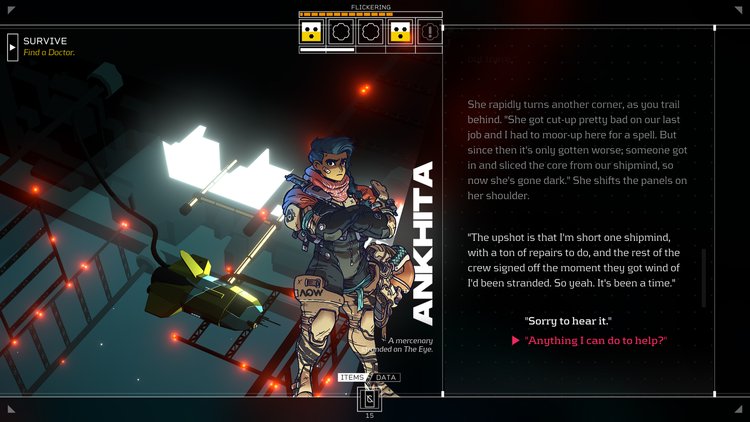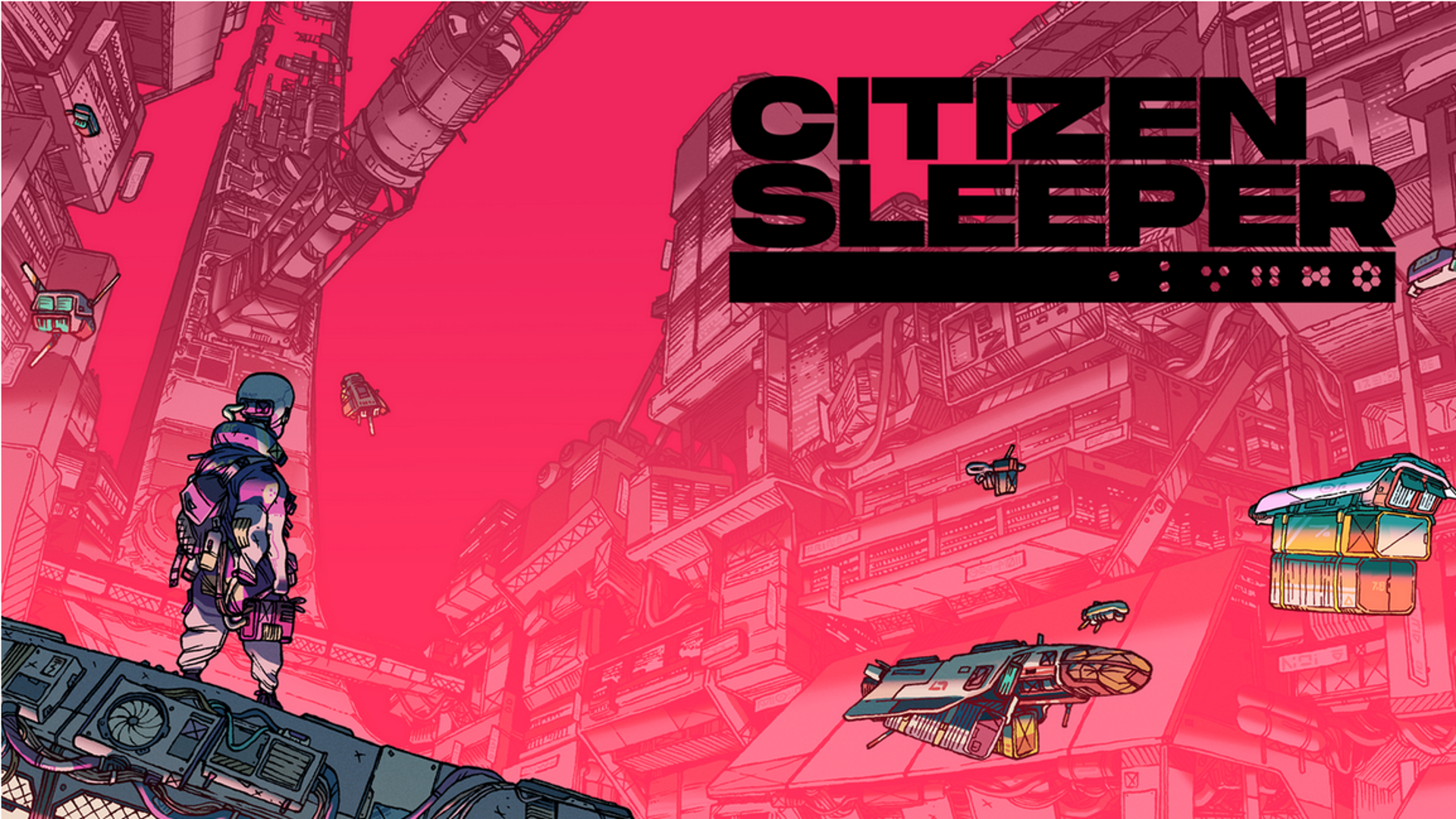| Developer: | Jump Over the Age |
| Publisher: | Fellow Traveller |
| Genre: | Digital Tabletop Role Playing Game |
| Price: | $19.99 USD |
| Platforms: | PC, Nintendo Switch, Xbox |
| Where to Buy: | Steam, Nintendo eShop, Xbox Store |
Before I begin my review of Citizen Sleeper, I would like to take the time to let you all know that the game was provided to me from thedailygamepad.net and was given to thedailygamepad.net for free by the developers/publishers of the game. I would like to thank the developers/publishers on behalf of thedailygamepad.net for providing a free copy of the game to play for this video and for review.

In Citizen Sleeper, you live the life of an escaped worker who has washed up on a station at the fringe of a galactic civilization. You get to explore the station, pick your friends, flee your past, and alter your future in this game that was inspired by the openness and adaptability of tabletop role-playing games.
When the game first starts, you get to choose from three different classes:
The Machinist fixes and alters industrial resource extraction automation systems. To complete difficult operations remotely, The Operator uses high-precision remote machinery and drones. The last class you have is The Extractor, whom extracts resources, frequently in extreme vacuum environments.
Just like in traditional TTRPG each class has its advantages and disadvantages, so you will want to read each class and decide which to use. For my playthrough, I choose to go with The Operator, which seems to be the default character.

The game has a really in-depth storyline, and I rather enjoyed the roleplaying visual novel aspect of the game. I loved how your choices matter in the game and have always been a fan of games that have choices matter involved in the gameplay. These choices help to shape relationships and friendships with the characters in the game. From the time Dragos wakes you up, you feel a sense of being in control and get roped into the story of the game.

The game; once out of the visual novel and roleplaying aspects, is like any traditional RPG. You use dice rolls to determine the outcome of certain events. The gameplay wasn’t the worse, at times it could be a little confused and I felt it could have been explained a little better than it was. I didn’t realize I didn’t have to use all of my dice in one turn, and doing so caused me to have negative effects applied to an event. So, I wish it explained a little better that you didn’t have to use all the dice, or if you had to use all the dice.



